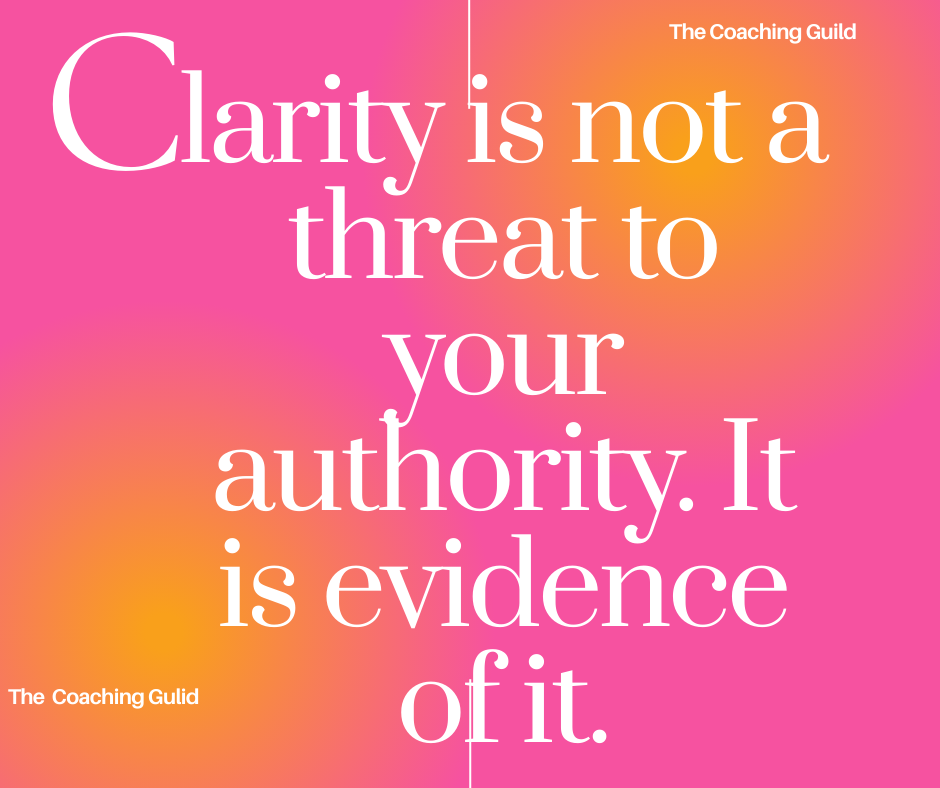Toxic Thought-work
When thought-work goes terribly wrong

This story is being shared 100% with my client’s permission. Names and specifics have been changed to protect client identity.
We will call her Amanda.
Amanda is a bright, gorgeous, accomplished woman. She is professionally successful. She lights up a room when she walks in.
Amanda was madly in love with her husband and worked hard to be fully present in her marriage. She was training for a half-marathon and planning a month-long trip to Europe to see Mike’s family after the first of the year. Life was precisely the way she’d hoped it would be…
until she started noticing something inside her bubbling up. Amanda and Mike were married for almost five years when Mike changed jobs. At his new company, a woman who was probably ten years younger than him immediately laid claim to Mike as her mentor. Amanda felt it instantly. She didn’t like this woman. However, Mike seemed to like her quite a bit. He was flattered by her attention.
Amanda didn’t like feeling the way she did. So she put those feelings to bed after discussing it with her coach. Her coach helped her see clearly that her thoughts about this woman and the situation made her feel the way she did. Her thoughts were making her feel jealous and insecure. Amanda needed to take responsibility for her thoughts and adopt a different way of thinking about Mike and this woman.
Amanda started practicing new thoughts like, “Mike is smart and talented. He is professionally in demand. That is good news for our future together. I have nothing to be worried about because this man loves me.” She continued planning that European vacation to see family and added in a couple of extra very romantic stops.
Eventually, the noise in her head calmed to almost nothing, and Amanda’s anxiety wained. Even as Mike started spending more time with this woman, occasionally taking calls from her in the evenings, and every once in awhile meeting her in the office on the weekend to work on projects, Amanda did her thought work and didn’t let herself get off the rails…
until one day, when Amanda was going through credit card statements, she realized Mike was buying lunch for two regularly. At first, he played it off like he was lunching with clients. However, eventually, he admitted he was having lunch with his mentee quite frequently.
Mike was offended that Amanda was upset. He couldn’t understand why she didn’t trust him. Work is work and nothing more. He was simply trying to be professionally supportive to her. Mentorship was a part of his job. Amanda wanted to believe him. She later admitted to me he pushed her to the floor that night when he was angry. She told herself it was her fault for pressuring him too much. She knew she seemed irrational.
Amanda discussed the lunches with her coach. Her coach told her she was choosing thoughts that made her feel bad. The coach helped her understand Mike could not be responsible for her feelings.
It took some time, but eventually, Amanda realized it was her thoughts about these lunches, causing her pain. There was no concrete reason to think he was unfaithful. Amanda realized once again, her thoughts, at times, made her feel, and act insecure. She loved Mike and didn’t want to do damage their relationship by acting out with her insecurity. She needed to take responsibility for the thoughts that were causing her pain.
It took a lot of effort, but Amanda did the thought work. She felt better about herself after adopting some newly minted thoughts that brought her into her power. Amanda got her haircut and bought some new lingerie. She up-leveled her game in several key areas. She got back on track. Amanda got a promotion at work and felt closer to Mike than she had in a long time…
until three months later, Amanda realized the lingerie had been a smashing success. She was pregnant. She was excited to tell Mike. She felt like it was the right time to start a family. However, over dinner, when Amanda shared the joyful news, Mike was less than thrilled. He was angry and accusatory. While it wasn’t true, he believed she’d gotten pregnant on purpose. It wasn’t in Mike’s plans at the moment to become a parent.
He said he needed to clear his head. Mike got up from the table and stormed out of the house. He was gone for several hours. Amanda had a feeling, and it gnawed at her. In her gut, she just knew he was with that woman. However, when he came home after midnight and climbed into bed with her, she decided not to confront him. Amanda knew what to do. She needed to do her thought work.
So she did.
She worked her thoughts like a pro.
The next morning Mike kissed her before leaving for work and said, “We will make great parents. I know it.” She knew it too…
Until four weeks later, Amanda was walking out of her office to head home when her phone rang. She didn’t recognize the number but assumed it was business-related, so she paused in a dark parking lot and took the call.
“Is this Amanda Sterns?” A woman tentatively asked.
“Yes. How can I help you?”
“This is Christine. I work with your husband, Michael. He doesn’t know I’m calling you.” Amanda froze. “Michael has told me you are expecting a baby. I think you deserve to know I am also expecting a baby.” Her voice broke a bit before she continued. “I guess I should say, Michael and I are expecting a baby.”
Amanda drove home. Without hesitation or fanfare, she confronted Mike. He didn’t deny the accusation. They spent the next six hours hashing it out, talking about how to save their marriage.
Mike told her he didn’t believe her baby was his. He explained Christine was also married. Mike claimed they’d only slept together a few times. Mike told Amanda he tried to call off the affair for good the night he learned she was pregnant.
It was only a few days after that Christine also announced she was expecting. He thought this was a desperate attempt to keep him in the affair. Mike believed if she was pregnant at all, undoubtedly it was her husband’s baby.
Mike sobbed. He begged for forgiveness. He told Amanda he was committed to their marriage and child. Amanda was devastated. However, she couldn’t imagine bringing her baby into the world as a single mother. She wanted to fix her marriage.
The next day, Amanda found herself heart-broken, two months pregnant, and talking to a new coach. The first thing she said to me was, “Please help me do my thought work about my husband’s affair. My thoughts are causing me a lot of pain. I guess I’m choosing to feel betrayed. However, I’m having a hard time shifting. I’m afraid the way I’m thinking about this will make it difficult for me to forgive Mike and have the marriage I want.”
“No,” I answered, “Your thoughts aren’t the problem. Your husband and his choices are the problem.” The rest of our conversation that day was bumpy at best. She wasn’t ready to let go of thinking she should overcome her feelings of disappointment and betrayal to save her marriage.
Some might say she was spot on with her assessment. Some might say that blaming someone else for your feelings is giving away all your power.
At The Coaching Guild we teach more than one tool for helping a client reclaim their power. In this case, boundaries were the right way to create powerful outcomes. You have to learn you can trust yourself not to take shit if you want to feel safe.
The thought work model is powerful.
Circumstances → Thoughts → Feelings → Actions → Results
It is game-changing and course-shifting. Thought-work can set you free from a prison of your own making in your head.
However, dogmatic thought-work is a problem. It becomes instantly toxic if it is taught as the only path to liberation.
When thought-work is a bypass around your intuition or when it disrupts boundary-setting, it is profoundly disempowering. When thought-work disarms your instincts or makes you think abuse is all in your head, it becomes a dangerous sidestep of reality.
Much like the more radical teachings of deliberate creation suggest you are responsible for every-single-thing you experience in your life because you attract it with your thoughts – radical thought-work, mindset coaching teaches you are responsible for how you experience every-single-thing that happens in your life because your thoughts determine your emotional outcomes.
I want to be completely clear. I am not saying all thought-work or thought-work coaches are radical. Nor am I suggesting all deliberate creation concepts or LOA coaches are radical. The human experience is way more grey than it is ever black and white. Most people instinctively know that.
The bottom line is there is no one magical way of thinking that fixes everything in your life all the time. Anyone who wants to make you believe that might be desperately underestimating the complexities of being human. Not everything you experience can be controlled by your thoughts. Not all of your pain is in your head.
More importantly, sometimes pain is a signal that you’re in danger, and the painful thoughts should be heard instead of re-worked. It’s not always healthy to assume discomfort should be eradicated with a shiny new set of thoughts. Maybe we shouldn’t always be seeking a breakthrough. Sometimes we should be looking for a safe exit.
Thought-work wasn’t going to fix Amanda’s marriage. Nor did she create her husband’s infidelity with her thoughts. However, thought-work does make it possible for Amanda and Mike to create a new relationship that allows them to co-parent in a very healthy way. A deliberate creation practice is helping Amanda move on from her marriage intentionally with a lot more joy and ease than she had in her marriage.
Sometimes the best coaches know when NOT to use a specific tool. When you only work one tool in your coaching practice you run the risk of hurting a client with your expertise. Humans do not fit in one size fits all boxes.
Our coaches might use thought work or deliberate creation in their client sessions. However, they are never going to weaponize it or use it as a tool to bully a client because it is the only tool they have or the only tool think is valid.
The Coaching Guild teaches a multi-discipline foundation of coaching skills based in solid coaching mechanics, identity shifting, neuro, and behavioral science, and science-based deliberated creation. We feature experts and mentor coaches who bring both diversity and diverse expert skills like emotional literacy, mental health, trauma-informed coaching, and coaching ethics. We elevate training on cultural competence and sexual orientation and gender identity.
The Coaching Guild believes great coaches are fluid in a variety of coaching skills. Our coaches are nimble and skilled. They are better able to meet a greater variety of clients where they are. We believe that will make it easier for them to both be profitable and to serve their clients.


